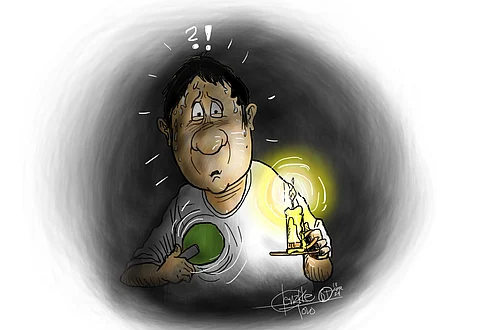
- NEWS
- the EDIT
- COMMENTARY
- BUSINESS
- LIFE
- SHOW
- ACTION
- GLOBAL GOALS
- SNAPS
- DYARYO TIRADA
- MORE

Brownouts have become an ordeal that Filipinos must endure in the summer when the demand for electricity picks up. The frequency of the outages has become so predictable that households bring out their candles and, for the more well-off, generators when the temperature peaks.
Electricity suppliers reason that the use of air conditioners and other cooling devices rises along with the temperature’s upswing.
Last Tuesday, however, the supply shortfall reached alarming proportions as 39 power plants all over the country conked out simultaneously, which was unprecedented.
The extreme heat resulted in the peaking of electricity use that the power plants couldn’t sustain, resulting in massive brownouts.
The Department of Energy's quick solution was to call for the interruptible load program (ILP), which, in essence, passes to the private sector the responsibility of keeping the power grid stable using generators. Under the ILP, the government compensates private firms for the electricity augmented.
The ILP substitutes for the required backup electricity or ancillary services from the grid operator.
The search for energy security has been an elusive goal due to the frequent shifts in priority, primarily by the DoE.
The DoE’s current focus on liquefied natural gas is becoming problematic due to an interregnum caused by a lapse in coordination.
For instance, supply contracts are not moving since distribution utilities are avoiding costs from imported LNG since the Energy Regulatory Commission has yet to issue a decision on a petition for higher rates.
The agency has good reason to prioritize LNG, as it is vital to the transition to renewable energy under the draft Philippine Energy Plan.
Thus, the need for the public to cut down on energy use as policy tries to catch up with an immediate need.
Energy policy must be foresightful since the persistent shortfall is a precursor of a wider problem as the economy continues to grow rapidly.
Speeding up the framework to allow the use of nuclear power—which has been stalled for nearly four decades—will provide the grid with the reliability it has been seeking.
The technology has been held hostage by partisan interests that date way back to the Edsa revolt when all dealings of government were polarized.
The previous administration erased the stigma of nuclear energy by including it among the options in the fuel mix.
Nonetheless, its progress has once again stalled, indicating a lack of resolve.
A consolation in Tuesday's declaration of red and yellow alerts in the entire country is that the situation could have been worse.
The recent interconnections undertaken in the power backbone avoided a crisis.
Still, the government must exercise its mandate of reining in power-generating companies and other industry players. Under their utility franchises, they are required to ensure that the supply of electricity is not interrupted.
According to consumer coalition Power for People, the offenders during sudden or unannounced power deficits “are getting mere slaps on the wrist” that result in consumers paying for their faults through higher electricity bills since distribution utilities have to buy costly supplies from the spot market.
Thus, consumers are presented with the choice of having to pick between the devil and the deep blue sea.
The choice is always between power shortfalls or paying for expensive electricity, which is akin to blackmail.
